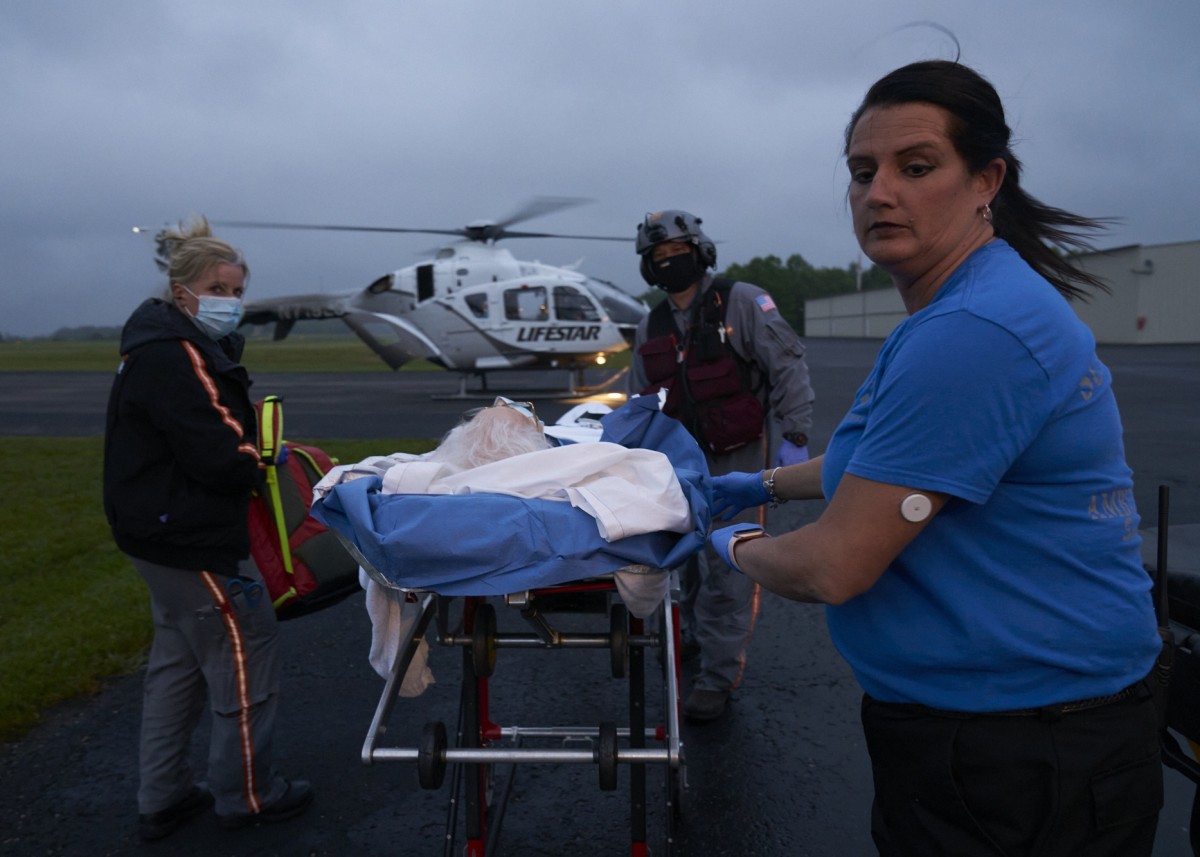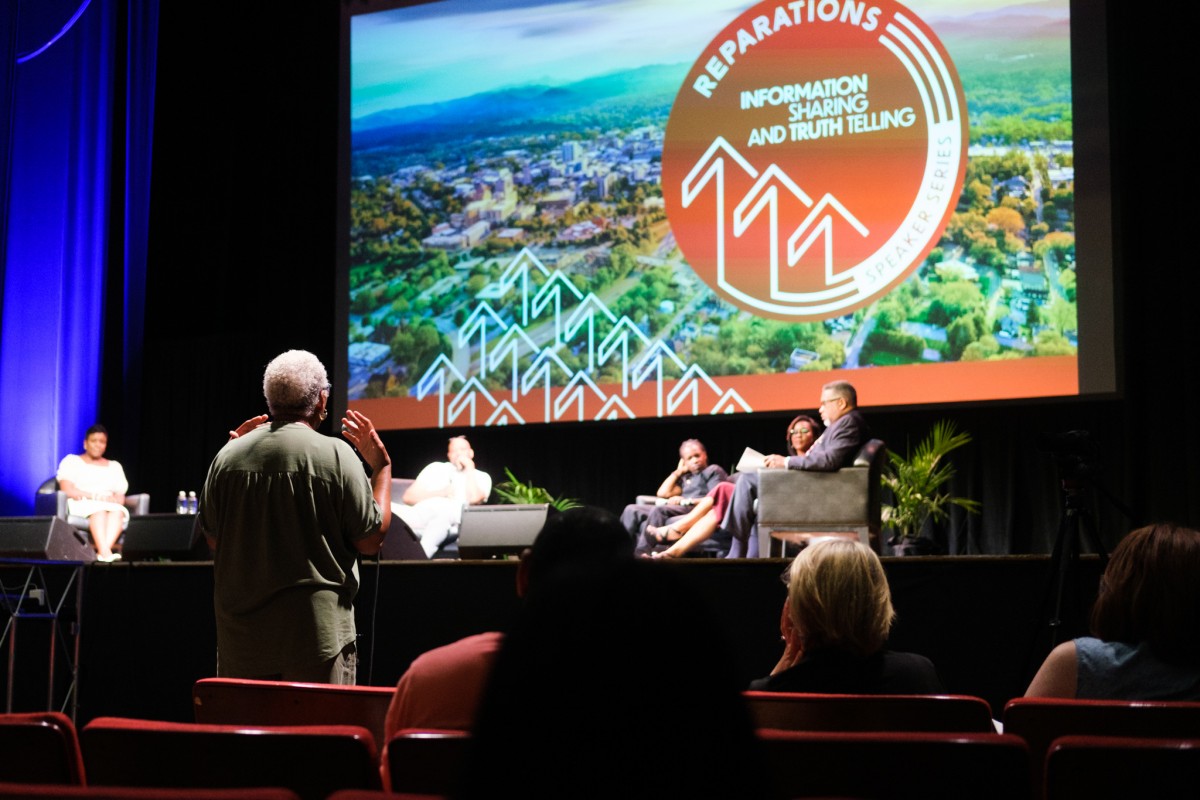Racism, abortion, same-sex unions, mask-wearing, vaccines. Churches could be sites of dialogue, pastors say. Now, they’re more polarized than ever.
Rev. Jeff Leake, lead pastor of Allison Park Church, a multi-campus worship community just north of Pittsburgh, Pennsylvania, posted about his first COVID shot on Instagram.
He meant his photo caption to be funny. “So far so good! All the rumors are untrue. No one stamped 666 on my forehead. No one asked me to deny my faith in Christ or pledge allegiance to the Antichrist!”
He had no idea what he was walking into.
“My goodness, my social media profile blew up,” he said. The comments — 57 of them in total — came from all sides. Some people thanked him, saying his example would save lives. Others warned him his endorsement would put people’s lives at risk.
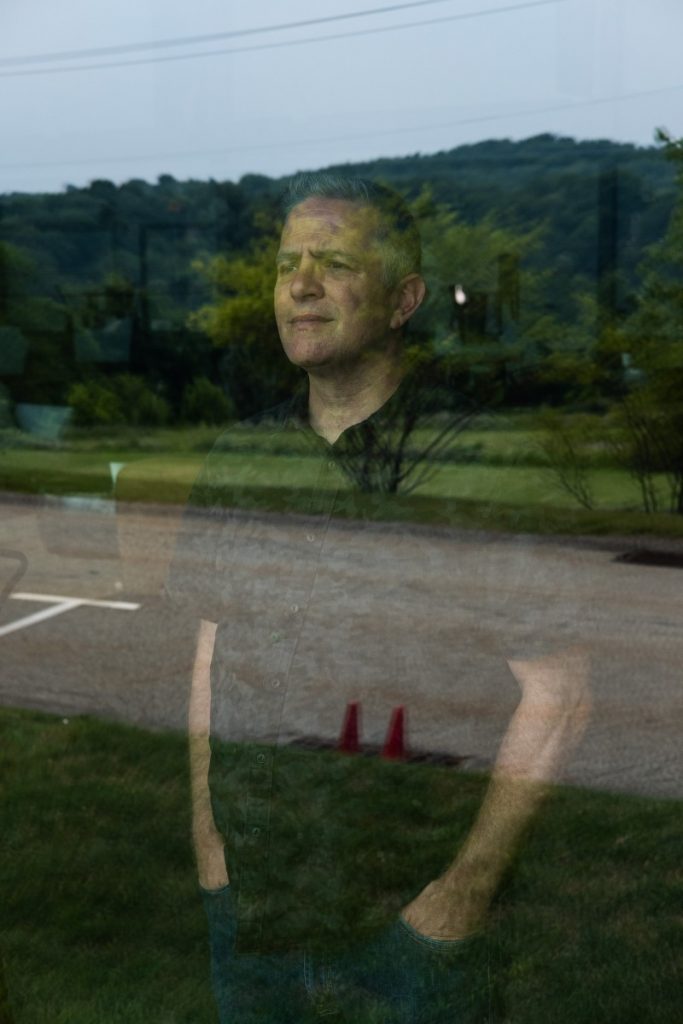
The whole thing died down in about 24 hours. Still, for Leake, it confirmed a trend he and other clergy had been noticing for a while: Christians are becoming more polarized. With the events of 2020–21 as fuel — the COVID pandemic, George Floyd’s murder, the 2020 election, an economic recession — a small spark of disagreement could start a full-fledged fire.
“So many pastors are just ground to a fine powder,” said Rev. Denise Thorpe, director of the Doctor of Ministry program at Pittsburgh Theological Seminary. They are struggling to keep their communities spiritually and financially afloat while also mediating political conflicts and guiding their communities’ responses to social issues.
In part, Leake blames social media. People are not only airing their political views more openly but also cultivating “echo chambers” in which they rarely encounter perspectives unlike their own.
That has made churches — spaces where people do sometimes still interact across party lines — both “pressure points and opportunity points,” Thorpe said. Religious communities could become rare sites of dialogue and healing or epicenters of the conflicts and divisions.
Pittsburgh churches have been segregated by race, class, neighborhood and geography for two-plus centuries. If the future of Pittsburgh Christianity is going to look less politically polarized than the present or past, it’s going to take intentionality.
When the Political is Theological
In the past, Christians tended to choose churches based on location and who they knew there, said Rev. Leanna K. Fuller, associate professor of pastoral care at Pittsburgh Theological Seminary and author of the book “When Christ’s Body is Broken: Anxiety, Identity and Conflict in Congregations.”
Today, faith communities are more likely to define themselves based on their views on social issues like abortion, same-sex marriage and racism.
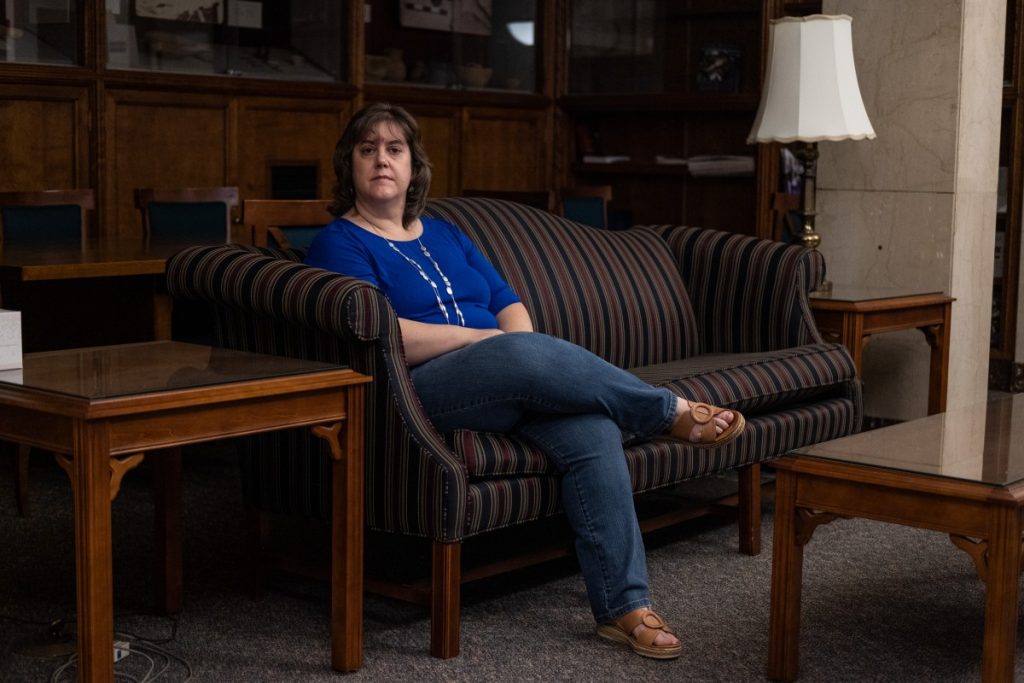
Still, when defending their social or political stances, most church leaders will trace them back to theological and biblical tenets. They see their political differences rooted in disagreements about the nature of God and the proper way to read Scripture.
The question that remains is which comes first. Do churches hold religious views and therefore take certain social and political stances? Or do they hold social and political views, and therefore take theological stances?
Likely the polarization works in both directions, Fuller suggests. The divides in Christianity and politics have fueled one another.
How Political Should Christians Be?
Rev. John C. Welch was giving a guest sermon. As part of the message, he had just described voter ID laws as anti-Christian. That’s when he heard someone shout.
“This is the house of God,” the person yelled from the pews. When he ignored them, they walked out.
To Welch, it seemed a fundamental misunderstanding of the pastor’s role. “We are called as a church to speak truth to power,” he said. He ran for mayor of Pittsburgh in 2017 based on a similar conviction. To be politically active feels to him like an essential Christian duty, something Jesus himself would undertake.
“Jesus was probably the preeminent political figure to walk the streets in his time,” Welch said. “He died because of his political views and actions.” For Welch, that places an imperative on Christians to be political actors.
The phrase “What would Jesus do?” coined in a best-selling American novel in 1896, has become so commonplace that it hardly registers as a distinct metric for Christian behavior.
Yet, like people’s understandings of God or Scripture, Christians have wide-ranging senses of who Jesus was and what he’d do on the American political scene today.
Rev. Justin Louis Murrell, pastor and co-founder of New Culture Church in Pittsburgh, feels conflicted about Christians being politically active.
On one hand, his own commitments to social justice are deeply rooted in his faith. On the other, being Christian and political doesn’t mean the same thing to everyone.
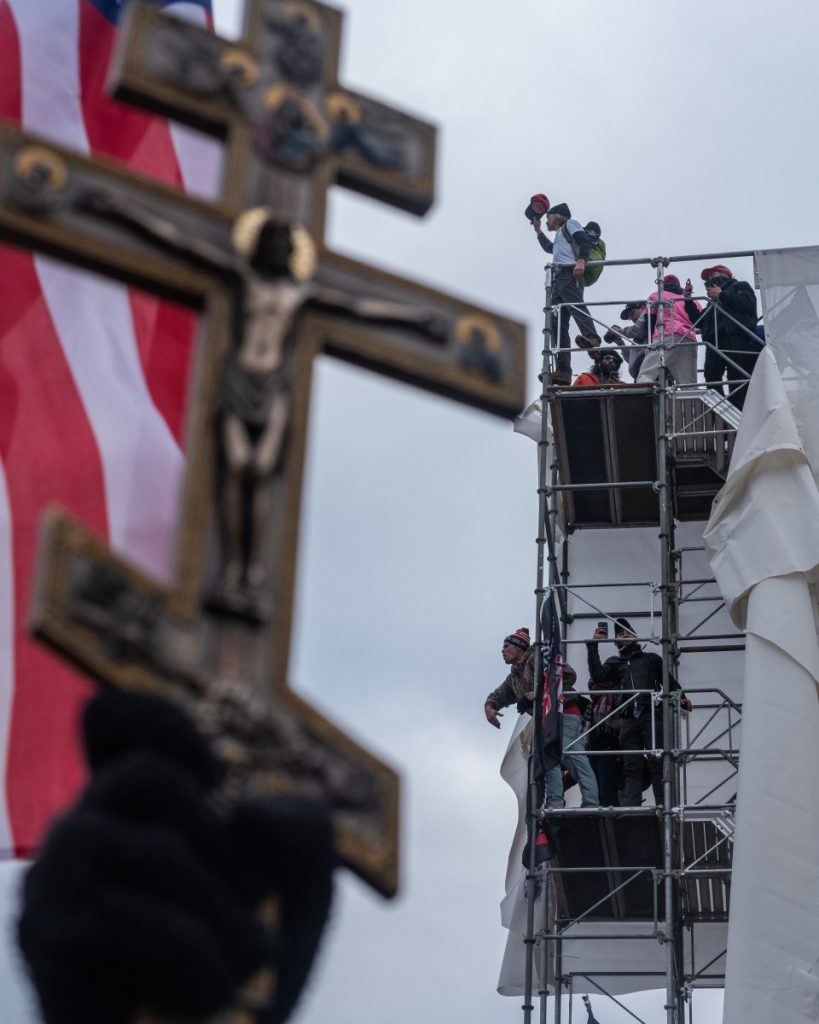
Watching news from the U.S. Capitol on Jan. 6, Murrell saw another form of Christian political activity, one in which Christianity was wedded to white supremacy and violent nationalism. The pairing wasn’t new. Since the time of slavery and colonization, some American Christians have used their faith as justification for racial oppression — a narrative of ‘civilizing and Christianizing’ non-white people.
For Murrell, that huge range in the meaning of Christian politics makes him wary. If he’s being totally honest, he said, “I don’t know if I want Christians taking over the government.” It feels high risk. He’s more inclined to try to stay nonpartisan. “Jesus wouldn’t be a Democrat or Republican, but He would love both parties, right?” he said.
Rev. Barry Whitworth, executive director of the Baptist Resource Network, feels more certain about Jesus’s nonpartisan or apolitical nature.
“Live like Jesus, love like Jesus and leave what Jesus left behind,” he said. “That’s the bugle that we blow. I’m tired of the politics that get into the church.”
Christians shouldn’t think in terms of Democrat or Republican, Whitworth counsels. They should focus on building a “kingdom culture,” or trying to make Earth look more like heaven. If the pastors he counsels show political leanings too far to one side or the other, he’ll step in to remind them of that goal — to make sure they’re staying focused on “what Jesus wants.”
His stance is polarizing. For Thorpe of PTS, the concept of staying out of politics is troubling, both theologically and socially. She sees people invoking it mostly “to shut down and shame” voices of social protest. If God chose to enter “flesh and blood” in the person of Jesus, she reasons, the Church has a responsibility to grapple with lived human concerns, including political ones.
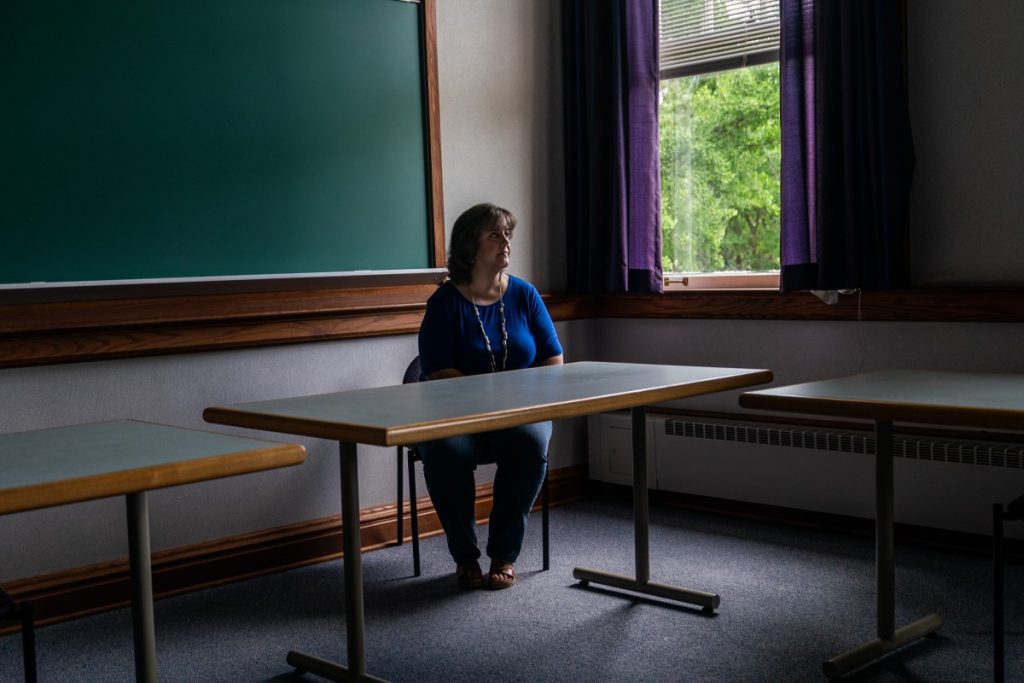
Fuller suggests that, on issues of racial justice, political versus apolitical may also be a false dichotomy. There are some churches actively espousing white supremacist views, Fuller said. However, the majority of Christians sort into two other camps: Either they want a church concerned with racial justice or they want one that “isn’t too political.” “Not political,” in this case, means not talking about race — a political stance unto itself.
Meanwhile, those who support staying nonpartisan often do so with a few important caveats or exceptions to their rules.
Consider Whitworth. He doesn’t mind Christians getting involved in government, if they “truly follow Christ.” Pastors in his Baptist network have served as “prayer warriors” at the state Capitol and partnered with the Pennsylvania Family Institute, an anti-abortion organization.
For him, the importance is that the relationship is one-directional: Christians can or should shape politics, but not the other way around. One reason the Church is so divided today, he argues, is because some Christians have lost sight of “true” Christian principles. They have let themselves be swayed by what’s politically or culturally fashionable.
Can Churches Be Apolitical?
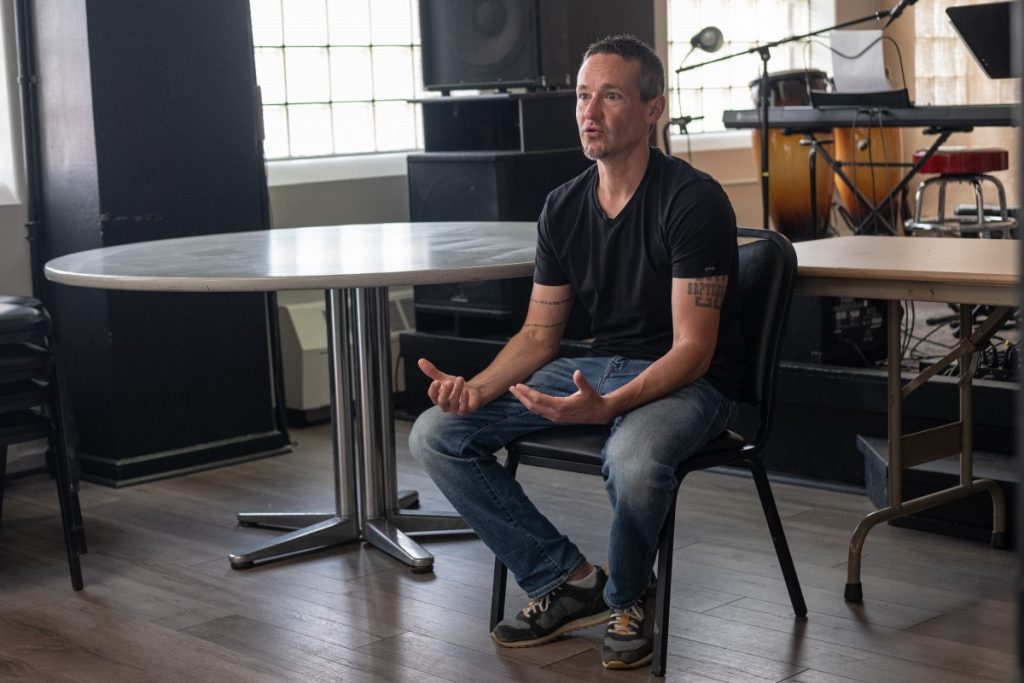
When Donald Trump was elected president, Rev. Nate Keisel, pastor and founder of Mosaic Community Church in the Westmoreland County city of Jeannette, about 40 minutes southwest of Pittsburgh, took heat from people at both ends of the political spectrum. Some congregation members were upset he didn’t openly support Trump. Others felt he should openly denounce him.
It made sense to Keisel. When he planted the church in Jeannette — an economically depressed, racially diverse former glass manufacturing town — one of his top priorities was building a diverse faith community as well. He knew that this diversity would extend into the political realm, too.
Personally, he wished he could just stay out of politics. He was critical of the national Democratic and Republican Parties, neither of which he saw aligning with his Christian values. He was fed up with Trumpism that got passed off as Christianity. At least at the national level, he sensed that Christians’ involvement in politics was maybe doing more harm to their witness than good.
Yet he made these claims with an asterisk. Keisel believes the government’s role in society is biblically mandated. If the government oversteps its God-given bounds or if it is morally in the wrong — if it violates “what we know deep down in our hearts” — then he thinks the church needs to step in. Sometimes as a Christian, he feels morally obligated to get political.
At the local level, he feels that moral imperative most often with economic issues. He has called upon the local government to address Jeannette’s status as a food desert, for example, rather than spending money to beautify the downtown area.
More contentiously within Christianity, he also feels compelled to speak up when the government “steps into” issues like abortion, same-sex marriage and the expansion of LGBTQ rights.
Theologically conservative Christians like Keisel believe same-sex attraction and being transgender are sins to resist, examples of individuals trying to define their own reality rather than accepting common moral standards. Theologically liberal Christians believe all people, including members of the LGBTQ community, reflect God’s image and that love between same-sex couples is a manifestation of God’s love like any other. Fuller calls sexuality likely the biggest dividing issue within Christianity today.
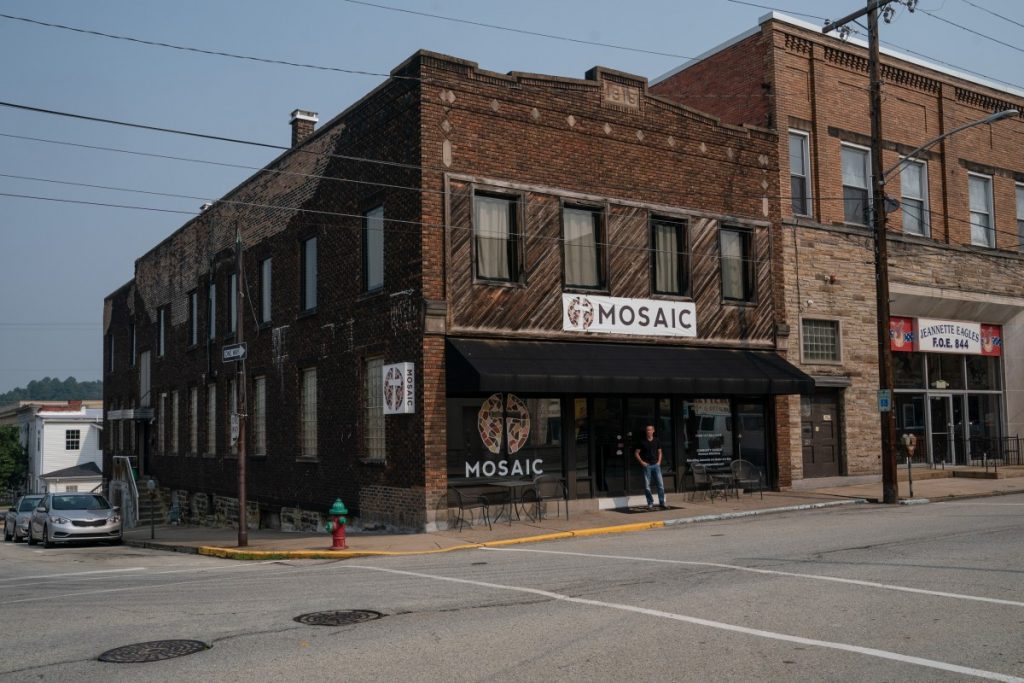
Distinguishing between politics and morality is one way theologically conservative, politically disinclined Christians end up taking vocal stances on issues related to marriage, abortion and families.
Rev. Jeff Stivason, professor at the Reformed Presbyterian Theological Seminary and pastor of Grace Reformed Presbyterian Church in Gibsonia, some 15 miles north of Pittsburgh, describes it in terms of a line to be crossed. He generally recommends Christians downplay politics and be good citizens. However, if the government strays from a moral or biblical ethic — say, in his view, legislating that transgender people may use the bathroom of their choosing — then they must object.
He explains that caveat using the same moral-versus-political terms Keisel described. “We may be forced to take a stand that will seem political,” he said, “but for us, it will be a moral issue.”
Some Christians, including Stivason, do not count racism among the moral issues that the faithful must address. Stivason said he worries churches are too focused on systemic racism and racial reparations, as if the country hasn’t been “moving forward and upward.” Thorpe, in contrast, identifies the Church as “deeply complicit” in the construction of race and argues that “there’s nothing more important for us to be engaging at this point.”
Left, Right, Both, Neither
As a Black Christian, Murrell of New Culture Church faces two kinds of assumptions about his political identity. People assume either a.) he’s Christian, so he must be a Republican and have voted for Trump, or b.) he’s Black, so he must be a Democrat and have “voted for abortion.” Murrell, who describes his congregants as “conservative liberals,” doesn’t see himself fitting into either political category.
Leake of Allison Park Church pushes back against tendencies to conflate white evangelical Christianity with straight Republicanism. He sees the Christian faith drawing together issues from the left and right under its own distinctive umbrella. He used the example of a pastor he follows on social media who said Christians should be “absolutely 100% against racism” and also oppose same-sex unions.
And if those traditionally progressive and conservative values come into conflict?
That debate is playing out right now as some churches wrestle with their relationship to the Black Lives Matter movement, which states in its mission, “We affirm the lives of Black queer and trans folks.”
Murrell of New Culture Church suggests some members of his congregation, Black and white, support the sentiment that Black lives matter but aren’t sure about the movement. They are worried, for example, that the movement seeks to “disrupt the nuclear family”; if true, they see no way to reconcile that value with their Christian convictions. Murrell’s own view flips the logic: He disagrees with some of the movement’s tenets but still supports the movement.
“What’s more important is that Black lives do matter,” he said. “My own political persuasions, religious persuasions, I can get over those types of things in order to see the movement progress.”
For congregations that see racial and LGBTQ inclusivity as both Christian values, it’s a moot question.
Healing Divides
In fall 2020, just before the presidential election, Leake ran a small-group series at Allison Park Church on how to relate to people with whom you disagree. The series, which centered on the Book of Romans, was called “Behave Yourself.”
“It was very messily successful,” Leake said. Some of the conversations brought people together. Others were “very, very painful;” they separated close friends.
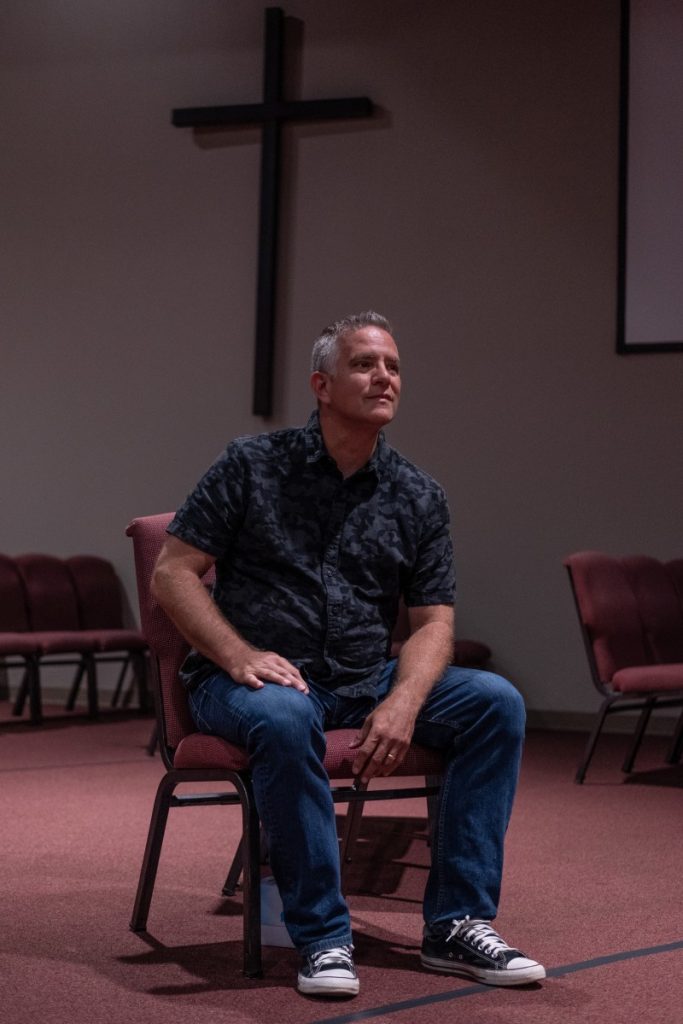
When it comes to handling congregational conflict, Fuller at Pittsburgh Theological Seminary emphasizes relationality above all.
“Relationships can hold difference and conflict,” Fuller said. When people are part of a genuine community, they can have tough conversations.
Pastors and laypeople alike can set the tone for these conversations. Fuller teaches her students to find the people in their congregations who are calm, flexible and open-minded. “Are they on your leadership boards?” she said. “If not, maybe they should be.”
Once that sense of community is in place, then the only thing left to do is practice, Fuller said. They should raise topics that draw out their differences on a regular basis. Often congregations are more concerned with “getting along and being nice” than confronting their differences. They brush controversies under the rug under the guise of nonpartisanship.
Once something big comes along, though — a key decision to be made or a crisis to confront — conflict-avoidant congregations can get stuck. People are shocked and hurt to learn they don’t all believe the same thing. The conflict is uncomfortable. Sometimes people leave.
Listening closely and talking through differences doesn’t require church members to accept points of view they find hurtful or hateful. Quite the opposite, Fuller said: relationships breed accountability. Once people are in relationships, they can tell each other, ‘That hurt me,’ and actually have a chance of being heard.
Fuller hasn’t given up hope. If people learn to talk through their differences in religious spaces — spaces where the stakes are often heightened by people claiming God or Scripture on their side — they just might be able to extend the lesson to other spaces, too.
This article was co-published with PublicSource, a nonprofit news outlet in Pittsburgh with a mission to inspire critical thinking and bold ideas through local journalism rooted in facts, diverse voices and the pursuit of transparency. Sign up for their newsletters here.
Chris Hedlin is PublicSource’s faith and religion reporter. She can be reached at [email protected] or on Twitter @ChristineHedlin.
Chris Jones contributed to this story. He is a Report for America corps member covering domestic extremism for 100 Days in Appalachia. Click here to help support his investigative reporting through the Ground Truth Project.
This story was fact-checked by Chris Hippensteel.


